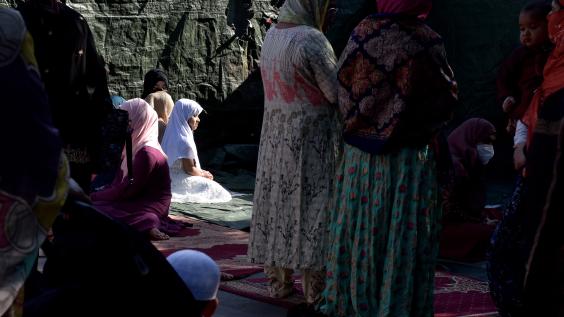The Role of Religious Leaders in Advocating for Women

Table of Contents
In a region where many laws and practices are informed by religious doctrine, the line between religion and the state blurs. Undeniably, religious leaders (imams, priests and rabbis) continue to play a critical role across the Middle East and North Africa (MENA) region in shaping the opinions of their communities and exerting significant power on society. However, when it comes to women’s basic human rights, such as the protection against violence and abuse, how much influence should religious leaders have? Should women’s civil society organizations take a secular approach and pursue change through the state, or is collaboration with religious authorities a prerequisite for social and legal progress?
Religion is a powerful motivating factor, and religious leaders control the message and direction of this motivation. While this can serve as a positive influence, it can also be potentially threatening to the goals and aims of women’s organizations when conservative religious interpretations limit women’s rights and freedoms. These religious leaders, however, can only gain and maintain power through the support of their communities. According to a Pew research poll on the influence religious leaders should have in politics, the countries of the region predominantly supported men of religion [1].
On one end of the spectrum, Lebanon had only 37 percent of the country’s Muslims say that religious leaders should have some influence. In contrast, 80 percent and 75 percent of Jordan and Egypt’s Muslim population, respectively, felt that religious leaders should play a role in politics. With the exception of Lebanon, the majority of Muslims in the polled Arab countries believed that religious leaders should exercise influence over the political realm, with a quarter or more saying that they should have large influence.
Civil society organizations, in particular those related to women’s issues, must choose whether to actively engage with the religious community in their work, or choose a more secular approach. There are several paths that women’s organizations can take with regard to the incorporation of religious leaders in their mission and activities. Nadje Al-Ali, a prominent scholar on women’s movements and activism in the Middle East, suggested that taking a secular approach could effectively mean that one’s religious approach is non-dogmatic, rather than non- religious, or the traditional definition of secularism [2].
Women’s organizations, therefore, have three options: to rely on religious leaders for legitimacy, to take a moderate route by engaging with religious discourse to enact change, or to circumvent religious influence altogether.
Given the importance of religious leaders and the desire to have them involved in political life, civil society in the MENA region must engage with religious leaders. This engagement can come in the form of dialogues, training sessions or awareness-raising campaigns. Religious leaders can help to reinterpret religious edicts and cultural norms to promote women’s rights such as the protection against domestic violence [3].
The degree to which religious leaders should be involved should correspond to the opinions of the individual countries and communities. To avoid engagement with religious authorities entirely is to deny the societal foundations of the region, as evidenced by the poll results mentioned above.
Perhaps what is most critical in this discussion is the need for women’s organizations to work collaboratively, build local and regional networks, and learn from each other’s experiences, regardless of their ideological or strategic differences. Whether women’s organizations take a path that is secular, religious or somewhere in between, they are all working toward the preservation of women’s rights and should prioritize support for one another over ties to religious institutions or the state.
Endnotes
1. Pew Research Center, “Religion and Politics,” in The World’s Muslims: Religion, Politics and Society, last modified April 30, 2013, http://www.pewforum.org/2013/04/30/the-worlds-muslims-religion-politics-society-religion-and-politics/.
2. Nadje Al-Ali, Secularism Gender and the State in the Middle East: The Egyptian Women’s Movement (Cambridge: Cambridge University Press, 2000), 129.
3. Anne Angarola, Steven E. Steiner, and Shannon Zimmerman, “Engaging Men in Women’s Rights and Empowerment in South Asia and the Middle East,” United States Institute of Peace, April 26, 2013, http://www.usip.org/sites/default/files/PB145-Engaging-Men-in-Women’s-Rights.pdf.
Ariana Marnicio is the research analyst for the Women’s Rights in the Middle East Program. She graduated from Georgetown University with a degree in Arabic, and has lived in Egypt, Jordan and Oman. Her main research areas include sexual health and education in the Middle East, women’s empowerment and Islam.
This material may be quoted or reproduced without prior permission, provided appropriate credit is given to the author and Rice University’s Baker Institute for Public Policy. The views expressed herein are those of the individual author(s), and do not necessarily represent the views of Rice University’s Baker Institute for Public Policy.


